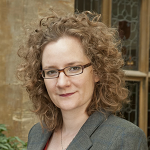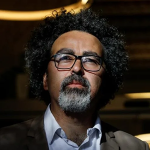The Oxford Handbook of Refugee & Forced Migration Studies

Editor(s): Elena Fiddian-Qasmiyeh, Gil Loescher, Katy Long, Nando Sigona
Publisher: Oxford University Press
Year of Publication: 2014
Print Length: 784 pages
Genre: Non-Fiction / Migration & Refugee Studies, Arts & Humanities, Political Science, Social Science, International Relations, Anthropology, Sociology, Economics, Geography
Area: Global, West Africa, Southern Africa, The Great Lakes of Africa, Horn of Africa, North Africa, Middle East, Central Asia, South Asia, Southeast Asia, East Asia, Australia, New Zealand, Pacific Oceania, Asia-Pacific, South/Latin America, Central America, The Caribbean, North America, Europe
This Handbook critically traces the birth and development of Refugee and Forced Migration Studies, and vividly illustrates the vibrant and engaging debates that characterize this rapidly expanding field of research and practice. The contributions highlight the key challenges faced by academics and practitioners working with and for forcibly displaced populations around the world, as well as identifying new directions for research in the field. Since emerging as a distinct field of study in the early 1980s, Refugee and Forced Migration Studies has grown from being of concern of a relatively small number of scholars and policy analysts to become a global field with thousands of students worldwide studying displacement, either from traditional disciplinary perspectives or as a core component of newer interdisciplinary programmes across the Humanities and Social and Political Sciences.
Today, the field encompasses both rigorous academic research as well as action-research focused on advocating in favour of refugees’ needs and rights and more directly concerned with influencing policy and practice. The Handbook’s fifty-two state-of-the-art chapters, written by leading academics, practitioners, and policymakers working in universities, research centres, think tanks, NGOs, and international organizations across every continent, provide a comprehensive and cutting-edge overview of the key intellectual, political, social, and institutional challenges arising from mass displacement in the world today.
Topics
MAIN TOPIC
Refugees & Forced Migration, Asylum & Asylum Seekers, Environmental Refugees, Exile & Exodus, Asylum & Refugee System, Refugee Management/Governance, Responses to Refugees, Global System
PART I. APPROACHES: OLD AND NEW
History, International Law, Politics & Political Science, Politics & Power, Ethics & Morality, International Relations, International Cooperation, Anthropology, Sociology, Refugee Livelihoods, Refugee Economies, Geography
PART II. SHIFTING SPACES AND SCENARIOS OF DISPLACEMENT
Camps, Refugee Urban Settlement, City & Urban, Humanitarian Urbanism, Internally Displaced Person (IDP), Protracted Refugee Situations, Diaspora, Transnationalism, Legality & Illegality
PART III. LEGAL AND INSTITUTIONAL RESPONSES TO FORCED MIGRATION
The Status of Refugees, Refugee Status Determination, Human Rights, International Institutions, UNHCR, UNRWA, Palestinian, Humanitarian Action & Humanitarianism, State Control, Immigration Control, Borders, Citizenship, Security, Protection, International Protection, Statelessness
PART IV. ROOT CAUSES OF DISPLACEMENT
Armed Conflict, Conflict & Post-Conflict, Crisis / Crises, Peace, Development, Environmental Degradation, Mobility & Immobility, Smuggling & Human Trafficking
PART V. LIVED EXPERIENCES AND REPRESENTATIONS OF FORCED MIGRATION
Representation, Media & Narratives; Memory, Remembering and Forgetting; Refugee-Led Organisations & Networks, Refugees’ Roles & Self-Reliance, Children & Childhood, Gender, Age and Generation, Disability, Medicine & Healthcare, Mental Health, Religion
PART VI. RETHINKING DURABLE SOLUTIONS
Refugee Durable Solution, Refugee Local Integration, Refugee Voluntary Returns, Refugee Repatriation, Refugee Reintegration & Reconstruction, Refugee Resettlement, Refugee Burden/Responsibility Sharing
Table of Contents
Foreword by the United Nations High Commissioner for Refugees (UNHCR)
Preface
Acknowledgements
List of Abbreviations
List of Contributors
1. Introduction: Refugee and Forced Migration Studies in Transition — Elena Fiddian-Qasmiyeh, Gil Loescher, Katy Long, and Nando Sigona
PART I. APPROACHES: OLD AND NEW
2. Histories of Refugee and Forced Migration Studies — Jérôme Elie
3. The International Law of Refugee Protection — Guy S. Goodwin-Gill
4. Political Theory, Ethics, and Forced Migration — Matthew J. Gibney
5. International Relations and Forced Migration — Alexander Betts
6. Anthropology and Forced Migration — Dawn Chatty
7. Sociology and Forced Migration — Finn Stepputat and Ninna Nyberg Sørensen
8. Livelihoods and Forced Migration — Karen Jacobsen
9. Geographies of Forced Migration — Michael Collyer
PART II. SHIFTING SPACES AND SCENARIOS OF DISPLACEMENT
10. Encampment and Self-settlement — Oliver Bakewell
11. Urban Refugees and IDPs — Loren B. Landau
12. Protracted Refugee Situations — James Milner
13. Internal Displacement — Walter Kälin
14. Refugees, Diasporas, and Transnationalism — Nicholas Van Hear
15. Forced Migrants as ‘Illegal’ Migrants — Stephan Scheel and Vicki Squire
PART III. LEGAL AND INSTITUTIONAL RESPONSES TO FORCED MIGRATION
16. Human Rights and Forced Migration — Jane McAdam
17. UNHCR and Forced Migration — Gil Loescher
18. UNRWA and Palestinian Refugees — Susan Akram
19. Refugees and Humanitarianism — Michael Barnett
20. State Controls: Borders, Refugees, and Citizenship — Randall Hansen
21. The Securitization of Forced Migration — Anne Hammerstad
22. Protection Gaps — Volker Türk and Rebecca Dowd
23. Statelessness — Alice Edwards and Laura van Waas
24. Humanitarian Reform: From Coordination to Clusters — Simon Russell and Vicky Tennant
PART IV. ROOT CAUSES OF DISPLACEMENT
25. Conflict and Crisis Induced Displacement — Sarah Kenyon Lischer
26. Development Created Population Displacement — Christopher McDowell
27. The Environment-Mobility Nexus: Reconceptualizing the Links between Environmental Stress, (Im)mobility, and Power — Roger Zetter and James Morrissey
28. Trafficking — Bridget Anderson
PART V. LIVED EXPERIENCES AND REPRESENTATIONS OF FORCED MIGRATION
29. The Politics of Refugee Voices: Representations, Narratives, and Memories — Nando Sigona
30. Children and Forced Migration — Jason Hart
31. Gender and Forced Migration — Elena Fiddian-Qasmiyeh
32. Older Refugees — Claudio Bolzman
33. Disability and Forced Migration — Mansha Mirza
34. Health and Forced Migration — Alastair Ager
35. Religion and Forced Migration — David Hollenbach, SJ
36. The Media and Representations of Refugees and Other Forced Migrants — Terence Wright
PART VI. RETHINKING DURABLE SOLUTIONS
37. Rethinking ‘Durable’ Solutions — Katy Long
38. Local Integration — Lucy Hovil
39. ‘Voluntary’ Repatriation and Reintegration — Laura Hammond
40. Refugee Resettlement — Joanne van Selm
41. Burden Sharing and Refugee Protection — Martin Gottwald
PART VII. REGIONAL STUDIES: CURRENT REALITIES AND FUTURE CHALLENGES
42. Forced Migration in West Africa — Marion Fresia
43. Forced Migration in Southern Africa — Jonathan Crush and Abel Chikanda
44. Forced Migration in the Great Lakes and Horn of Africa — Gaim Kibreab
45. Forced Migration in the Middle East and North Africa — Sari Hanafi
46. Forced Migration in Broader Central Asia — Alessandro Monsutti and Bayram Balci
47. Forced Migration in South Asia — Paula Banerjee
48. Forced Migration in South-East Asia and East Asia — Kirsten McConnachie
49. Forced Migration in Australia, New Zealand, and the Pacific — Anne McNevin
50. Forced Migration in South America — José H. Fischel de Andrade
51. Forced Migration in Central America and the Caribbean: Cooperation and Challenges — Megan Bradley
52. Forced Migration in North America — Susan F. Martin
53. Forced Migration in Europe — Roland Bank
Name Index
Subject Index

Elena Fiddian-Qasmiyeh is the Co-Director of UCL (University College London)’s Migration Research Unit, and is the Founder and Director of the Institute of Advanced Studies Refuge in a Moving World research network across UCL. She is currently the PI of a multi-sited project funded by the European Research Council, South-South Humanitarian Responses to Displacement: Views from Lebanon, Jordan and Turkey (Southern Responses website). Between 2016-2021, she was PI of a 4-year AHRC-ESRC funded project, ‘Local Community Experiences of and Responses to Displacement from Syria‘ and between 2017-2020, she was joint PI of a 3-year project funded by the British Council-USA entitled Religion and Social Justice for Refugees. Elena is currently Co-I on the AHRC Network Plus programme, Imagining Futures through [Un]Archived Pasts, where she is jointly leading the Baddawi Camp Lab with Yousif M. Qasmiyeh. Her research examines experiences of and responses to conflict-induced displacement, with a particular focus on diverse forms of Southern-led responses to displacement and a regional focus on the Middle East and North Africa. She has conducted extensive research in refugee camps and urban areas including in Algeria, Cuba, Egypt, France, Jordan, Lebanon, South Africa, Syria, Sweden, and the UK.
Source: https://www.ucl.ac.uk/geography/elena-fiddian-qasmiyeh
More from Elena Fiddian-Qasmiyeh in this library, click here.

Gil Loescher (1945-2020) was an American political scientist and Visiting Professor at the Refugee Studies Centre, University of Oxford. He is a long-established expert on international refugee policy. For over 25 years, he was Professor of International Relations at the University of Notre Dame in the United States and was a visiting fellow at Princeton University, LSE, Oxford and the Department of Humanitarian Affairs at the US State Department in Washington DC. In recent years Gil has been Senior Research Fellow at the Centre for International Studies, University of Oxford, Senior Fellow for Forced Migration and International Security at the International Institute for Strategic Studies in London and a senior researcher at the European Council on Refugees and Exiles. He has served as a consultant to numerous governments, international organisations, non-governmental organisations, foundations and research institutes. Gil has been the recipient of numerous research, writing and teaching grants and has published more than 24 books and numerous journal publications.
Source: https://refugeeresearch.net/es/staff-members/gil-loescher/
More from Gil Loescher in this library, click here.

Katy Long is a researcher working for Freeman Spogli Institute, Stanford University, and has worked for University of Oxford, LSE, and Edinburgh. Her research focuses on migration, citizenship and refugee issues, especially responses to long term crisis and conflict—both by the international humanitarian and political communities and by refugees and migrants themselves. Although her work looks at global policy implications, she has carried out detailed fieldwork in Guatemala, Rwanda and Uganda. She has written extensively on these topics, and in 2013 The Point of No Return: Refugees, Rights and Repatriation —a monograph based on her Ph.D research into “durable solutions” to refugee crises. Prior to taking up posts at universities, she worked for the United Nations High Commission for Refugees’ (UNHCR) Policy Development and Evaluation Service in Geneva, writing on a number of issues including opening up labour migration routes for refugees, border closures and out-of-country voting. She also enjoys engaging in public discussions and debate on migration and humanitarian issues: she runs the website migrantsandcitizens.org and tweets as @mobilitymuse. Her work has also appeared at various news and TV platform. She is also the author ofThe Huddled Masses: Immigration and Inequality, a short accessible ebook.
Source: https://fsi.stanford.edu/people/katy_long
More from Katy Long in this library, click here.

Nando Sigona has over twenty years of research experience in the field of migration and forced displacement. He is Chair of International Migration and Forced Displacement at the University of Birmingham, UK where he teaches sociology of migration, displacement and citizenship. He is the Director of the Institute for Research into International Migration and Superdiversity (IRIS). He is also Research Associate at the Refugee Studies Centre, University of Oxford, visiting professorial fellow at Utrecht University and Senior Research Associate at ODI. His research interests include: irregular migration; statelessness; youth and family migration; Romani politics and anti-Gypsyism; asylum in Europe and the Mediterranean region; intra-EU mobility and the making of EU citizenship. Recent publications include The Oxford Handbook of Superdiversity (with Fran Meissner and Steven Vertovec, OUP 2022), Becoming Adult on the Move (with Elaine Chase and Dawn Chatty, Palgrave 2023), and Undocumented migration (with Roberto G. Gonzales, Martha Franco and Anna Papoutsi, Polity, 2019). He is also a founding editor of the journal Migration Studies, published by Oxford University Press, and Editor-in-Chief of Global migration and social change book series for Bristol University Press. His work has been featured in a number of international media, and he contributes regularly for magazines, newspapers and blogs (see recent media coverage), and is active on social media. Since 2008 he has maintained an academic blog – Postcards from… and on Twitter and Threads @nandosigona
Source: https://www.birmingham.ac.uk/staff/profiles/social-policy/sigona-nando
More from Nando Sigona in this library, click here.
